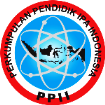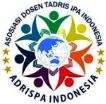Development of Assessment For Learning (AFL) through the Educandy Application for Middle School Biology Learning
Abstract
This research-based paper specifically aims to develop, describe and analyze and implement student assessment design products at the secondary school level which are integrated with digital education technology for learning biology with assessment for learning (AFL) format. In this study, the developed AFL design product was resulted in a valid and steady conclusion and became an alternative solution that could be implemented in the post-covid-19 pandemic for high school biology learning. This development research employs the ADDIE model which consists of analysis, design, development, implementation and evaluation stages. The chosen subjects of assessing the AFL design and instruments are lecturers of educational evaluation subject and three expert lecturers consist of one evaluation expert, one media expert, and one biological content expert. Such formulated review and input from expert lecturers serve as a validation of the AFL design instruments and products. In this research-based paper, the researchers describe how the process of making and assessing the feasibility of AFL for high schools biology learning and its implementation when submitted to the Subject Teacher Forum (STF) of Natural Sciences Subject in Subrayon 5 Gunung Halu, Cililin District, West Bandung Regency. Based on the findings of research and development of AFL biology learning in high schools in forms of assessments among the media experts, material experts, teacher evaluation and experts responses, as well as the results of implementation observations in the field, it can be concluded that AFL Biology learning with Educandy application is declared “feasible and effective” to be utilized in the learning process for high schools. The implication of such formulated research is to provide an alternative integrative learning approach for biology learning through the use of AFL Educandy for post-covid-19 pandemic learning.
Keywords: assessment for learning, educandy, high schools biology learning
Full Text:
PDFReferences
Adiguna, F. A., Madu, S., & Okulaja, A. A. (2015). Effects of Computer Based Instructional Strategy on Students’ Academic Achievement in Senior Secondary School Biology in Ogun State Nigeria. Atlantic, 1(1), 1-7.
Amelia, N. C., Zulhelmi, Z., Syaflita, D., & Siswanti, Y. (2021). Analisis Motivasi Belajar Peserta Didik melalui Penerapan Model Pembelajaran POE Berbantuan Game Edukasi Berbasis Aplikasi Educandy di SMPN 25 Pekanbaru. DIFFRACTION, 3(2), 56-61.
Anonim. 2007. Paket Pelatihan. Asesmen dan Evaluasi. Tersedia: http://mbeproject.net/pelatihan3-6.pdf [11 Agustus 2010]
Davis, A. L. (2013). Using Instructional Design Principles to Develop Effective Information Literacy Instruction: The ADDIE Model. College & Research Libraries News, 74(4), 205-207.
Efendi, R., Rustaman, N. Y., & Kaniawati, I. (2017, February). Profile of Prospective Physics Teachers on Assessment Literacy. In Journal of Physics: Conference Series (Vol. 812, No. 1, p. 012061). IOP Publishing.
Farida, I (2017). Evaluasi Pembelajaran. Bandung : Rosdakarya
Gardner, J (2012). Assesment and Learning. Sage Publications
Gathuri, J. W., Luvanda, A., Matende, S., & Kumundi, S. (2014). Impersonation Challenges Associated With E-Assessment of University Students. Journal of Information Engineering and Applications, 4 (7), 60-68.
Huang, W. H. Y., & Soman, D. (2013). Gamification of Education. Report Series: Behavioural Economics in Action, 29, 11-12.
I.Fitriati. R. Purnamasari Dkk (2021). Implementasi Digital Game Based Learning menggunakan Aplikasi Educandy untuk Evaluasi dan Motivasi Belajar Mahasiswa Bima. Vol. 1 No. 1 (2021): Prosiding Penelitian Dan Pengabdian 2021, Isbn: 978-623-6535-49-3
Lestari, S. P. (2020, November 12). Asyik dengan Educandy. Retrieved Maret 10, 2021, from kemenag.go.id.
Lestari, S., Mursali, S., & Royani, I. (2019). Pengaruh Model Pembelajaran Langsung Berbasis Praktikum terhadap Keterampilan Proses Sains dan Kemampuan Berpikir Kritis Siswa. Bioscientist: Jurnal Ilmiah Biologi,6(1), 54-62.
Lestari, W., & Saputra, E. R. (2021). Telaah Penggunaan Games Digital sebagai Evaluasi Pembelajaran Masa Kini. Jurnal Pendidikan Hayati, 7(2).
Ma’muroh, H. (2014). Pembuatan Instrumen Evaluasi Pembelajaran IPA Terpadu Berbasis ICT untuk Mengukur Kompetensi Siswa SMP Kelas VIII. Pillar Of Physics Education, 3(1).
Maryanti, S. (2017, November). Profil Pemanfaatan Teknologi Informasi dan Komunikasi (TIK) sebagai Media Pengembangan Bahan Ajar Digital oleh Calon Guru Biologi. Prosiding Seminar Nasional Pendidikan IPA “TPACK: Optimalisasi Pemanfaatan ICT untuk Meningkatkan Profesionalisme Guru dalam Pembelajaran IPA”. FMIPA UNY.
Maryanti, S., & trie Kurniawan, D. (2018). Pengembangan Media Pembelajaran Video Animasi Stop Motion untuk Pembelajaran Biologi dengan Aplikasi Picpac. Jurnal BIOEDUIN: Program Studi Pendidikan Biologi, 8(1), 26-33.
Milligan, S., Griffin, P., Care, E., Slater, H., Harding, S., & Scoular, C. (2014). The Assessment and Teaching Of 21st Century Skills Mooc. Retrieved July 2014.
Prayogi, R. D. (2020). Kecakapan Abad 21: Kompetensi Digital Pendidik Masa Depan. Manajemen Pendidikan, 14(2).
Ramdani, A., Jufri, A.W., Jamaludin, J.,& Setiadi, D. (2020). Kemampuan Berpikir Kritis dan Penguasaan Konsep Dasar IPA Peserta Didik. Jurnal Penelitian Pendidikan IPA, 6(1), 119-124.
Rayanto,Y.H, Sugianti (2020). Penelitian Pengembangan Model ADDIE dan R2D2: Teori & Praktek. Pasuruan : Lembaga academic dan research institute.
Redecker, C., & Johannessen, Ø. (2013). Changing Assessment—Towards A New Assessment Paradigm Using ICT. European Journal Of Education, 48(1), 79-96.
Richey, R. C., & Klein, J. D. (2014). Design and Development Research. In Handbook of Research on Educational Communications and Technology (pp. 141-150). Springer, New York, NY.
Rustaman, N.Y. (2005). Strategi Belajar Mengajar Biologi. Malang : Universitas Negeri Malang.
Sa'adah, S., Maryanti, S., Maspupah, M., & Mas' ud, A. (2020). Literasi Digital Mahasiswa Calon Guru Biologi dalam Menyusun Bahan Ajar Berbasis Audio Visual.
Septiana, Y. A. (2021). Pengembangan Media Pembelajaran Interaktif menggunakan Game Educandy dan Video Animasi Kine Master dan Animaker pada Pembelajaran Pengenalan Kosakata Anggota Tubuh dan Panca Indra beserta Fungsi dan Cara Perawatannya. EduStream: Jurnal Pendidikan Dasar, 5(2).
Sole, F. B., & Anggraeni, D. M. (2018). Inovasi Pembelajaran Elektronik dan Tantangan Guru Abad 21. Jurnal Penelitian dan Pengkajian Ilmu Pendidikan: E-Saintika, 2(1), 10-18.
Volante, L & Fazio, X. 2007. Exploring Teacher Candidates’ Assessment Literacy: Implications for Teacher Education Reform and Professional Development. Journal of Education 30, 3 : 749-770.
Wiliam, D. (2011). What is Assessment for Learning?. Studies in Educational Evaluation, 37(1), 3-14.
Wulan, A. R., Isnaeni, A., & Solihat, R. (2018). Penggunaan Asesmen Elektronik Berbasis Edmodo sebagai Assessment for Learning Keterampilan Abad 21. Indonesian Journal of Educational Assessment-Vol, 2(1).
Yang, K. T., Wang, T. H., & Chiu, M. H. (2015). Study The Effectiveness of Technology-Enhanced Interactive Teaching Environment on Student Learning of Junior High School Biology. Eurasia Journal Of Mathematics, Science & Technology Education, 11(2), 263-275.
Yuberti, Y. (2014). "Penelitian dan Pengembangan" yang Belum Diminati dan Perspektifnya. Jurnal Ilmiah Pendidikan Fisika Al-Biruni, 3(2), 1-15.
Zolfaghari, F., & Ahmadi, A. (2016). Assessment Literacy Components Across Subject Matters. Cogent Education, 3(1), 1252561.
DOI: http://dx.doi.org/10.24014/jnsi.v5i1.16627
Refbacks
- There are currently no refbacks.

Journal of Natural Science and Integration
E-ISSN: 2620-5092 | P-ISSN: 2620-4967
Published By:
Department of Natural Sciences Educations, Faculty of Education and Teacher Training, State Islamic University of Sultan Syarif Kasim Riau, Indonesia
Mailing Address:
Jl. H.R Soebrantas Km. 15 No. 155 Kelurahan Simpang Baru Kecamatan Tuah Madani, Pekanbaru, Riau, Indonesia
email: jnsi.tadrisipa@uin-suska.ac.id
Indexed By:
Journal of Natural Science and Integration is licensed under a Creative Commons Attribution 4.0 International License.


_-_Copyy2.png)






.jpg)
.png)
.jpg)
.jpg)




